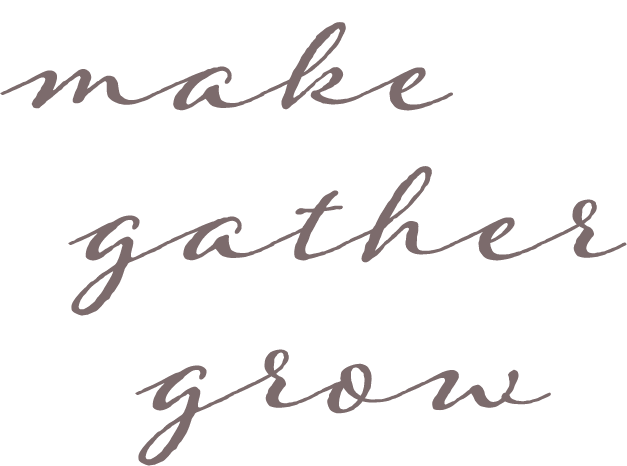Why the material life matters
Why am I writing about material life, the pleasures of rediscovering a connection to land through the things we eat and use and consume? After all, I was trained as a historian of the spiritual life, and specialized in the study of the kinds of people who specifically shunned all material possessions, pleasures, and rootedness. The Buddhist monastics and Jain ascetics I spent years researching viewed the material world with suspicion and sought to be free from its fetters.
But I’ve come to believe that the unique challenges of our time require a different way of engaging the material world.
Perhaps, in the twenty-first century, a conscious awakened life — in terms of caring for the well-being of the entire world — is a mindful material life, crafting a material life that gives a damn.
Being conscious about the way we meet our needs. Being conscious about what we waste, discard, or reuse. Caring for the things we own so that they last longer, fix them when they break. Participating in one’s own material life, not merely as a consumer but as a producer, a maker, a grower.
First of all, our material lives shape who we are inwardly, as persons — what is possible for us.
The foods that you ingest literally become a part of you. They shape your body and your mind. We now know that diets high in fast foods and processed foods compromise our physical health, but also affect our moods and our brain health in negative ways. Nutrient and mineral deficiencies in food may be reflected in depression, attentional disorders, and so on. Your nourishment changes what’s possible for you mentally and emotionally.
But actually, the same is true — although to a lesser extent — of virtually all the material goods that we touch, use, interact with, ingest, apply to our bodies, and so on.
If you accept this idea that your material life changes you — that your physical environment, diet, physical habits, and the objects around you shape you in complex ways — the question then becomes: Who do you want to be? In what direction do you want your material life to nudge you?
There’s certainly the direction that the forces of global market capitalism have pre-programmed for you: the mode of passive consumption, in which we interact with the world primarily by pressing buttons, fill our stomachs with substances wrapped in plastic, and rush on to the next thing? There are diversions on offer there, for sure, but primarily to fill the void created by the absence of real connection, real firsthand experience: virtual realities, staring at rectangular screens, entertainment that involves watching other people talk, dance, have adventures in nature, and even cook.
The alternative is claiming a more grounded way of participating in the world around you. You step boldly onto the ground beneath your feet, into actual landscapes around you, become awake to what grows and moves and lives around you. You move your body and make it create things — build, bake, craft, garden, harvest, gather. You source the things you need from actual people with names and faces. Little by little, you gain a sense of where things come from by participating in the processes of how things come to you. And because you are sourcing things more consciously, from within your foodshed or from artisans and producers in your region, you get to experience a range and depth of flavors unattainable in the world of mass-manufactured, computer-programmed, chemically enhanced and inter-continentally transported food. You’re in for sensory surprises, foods that taste like the earth in which they grew — a life re-infused with sensory experience, unique flavors and smells and textures and sights and sounds. You’re in for real connection with other people, an interdependence with them. And you’re in for a feeling that you’re a little bit more human again.
What kind of a person will these kinds of habit shifts, a grounded material life, make you? I can’t wait for you to find out. But I will venture to make some guesses: You will feel physically healthier. You will spend more time in the natural world, feel at ease there and connected to what is around you. You will move your body more. You will develop a rootedness, a sense of place, that supports you in whatever adventures you embark on. You will spend more time preparing and enjoying food. You will connect with more people in your community. You will feel more resourceful and confident. You will have new skills.
These habit shifts at a physical level make you inwardly grounded, too: down-to-earth, balanced, secure. A person with grit in your spirit and a bit of dirt under your fingernails, perhaps. This kind of inward groundedness is what we need in the twenty-first century, facing as we do an unpredictable future.


